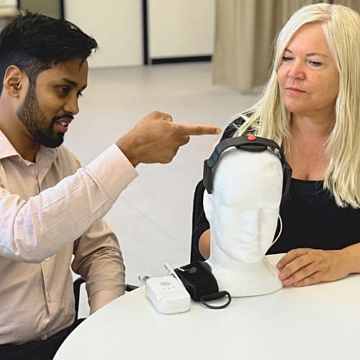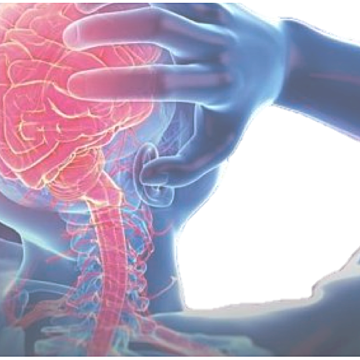News

Nahian Chowdhury
Current Appointments
Research FellowKey Research Areas
Dr Nahian Chowdhury is a Research Fellow at NeuRA, a Conjoint Lecturer at UNSW and the Head of Neurostimulation at the NeuroRecovery Research Hub at UNSW. He is also a registered psychologist with AHPRA. He completed his Masters in Clinical Psychology in 2017, and PhD in 2020. Nahian’s research focuses on the use of Transcranial magnetic stimulation (TMS) and Electroencephalography (EEG) to understand the brain mechanisms that contribute to the percept of pain. His goal is to identify brain biomarkers for pain that can be used diagnostically or which can be used as targets for treatments. His research also focuses on developing novel approaches in the use of non-invasive brain stimulation (repetitive TMS, transcranial direct current stimulation) for the treatment of pain.
Publications
2026, 28 Jan
A roadmap for transcranial direct current stimulation for chronic pain
View full journal-article on http://dx.doi.org/10.1097/j.pain.0000000000003893
2025, 21 Nov
The cortical mechanisms underlying the analgesic effects of repetitive transcranial magnetic stimulation: protocol for a systematic review and meta-analysis
View full journal-article on http://dx.doi.org/10.1186/s13643-025-02983-0
2025, 14 Oct
Lower pre-treatment TMS-evoked cortical reactivity and alpha-band oscillatory dynamics predict efficacy of primary motor cortex neuromodulation for chronic pain
View full preprint on http://dx.doi.org/10.1101/2025.10.11.25337793
2025, 01 Sep
Concern About Predictive Performance of a Pain Sensitivity Biomarker—Reply
View full journal-article on http://dx.doi.org/10.1001/jamaneurol.2025.2354
2025 Aug
Peak Alpha Frequency Is Not Significantly Altered by Five Days of Experimental Pain and Repetitive Transcranial Stimulation of the Left Dorsolateral Prefrontal Cortex
View full journal-article on http://dx.doi.org/10.1111/ejn.70219
2025, 02 May
The effect of prolonged elbow pain and rTMS on TMS-evoked potentials: A TMS-EEG study
View full journal-article on http://dx.doi.org/10.1162/imag.a.7
2025 May
Repetitive transcranial magnetic stimulation as an adjunct to quadriceps strengthening exercise in knee osteoarthritis: a pilot randomised controlled trial
View full journal-article on http://dx.doi.org/10.1136/bmjopen-2024-097293
2025, 21 Apr
The cortical mechanisms underlying the analgesic effects of repetitive transcranial magnetic stimulation: Protocol for a Systematic Review and Meta-analysis
View full preprint on http://dx.doi.org/10.21203/rs.3.rs-5567805/v1
2025, 11 Apr
Enzymes Drive Glutathione Shunt to Explain Oxidative State Using an In-Parallel Multi-Omic Method
View full journal-article on https://doi.org/10.3390/ijms26083632
2025, 19 Mar
Effects of nicotine compared to placebo gum on sensitivity to pain and mediating effects of peak alpha frequency
View full preprint on https://doi.org/10.7554/eLife.91933





